
The elegantly dressed woman ran her eye around the large, empty living room that had once been filled with richly hued silk-and-wool carpets made in Lahore, finely carved furniture, and calf leather-bound books. She thought of the large dining table set for so many parties with shiny silver goblets and blue-and-white Chinese porcelain, and she wondered what her life would be like in the future. She had spent decades in this far-off land, but it was time to leave. Her belongings had been packed in four heavy chests weeks before, sent ahead to arrive and be put away before she and her family even embarked on the ship that would bring them home. She thought about how happy and relieved she would be when she saw some of her precious personal items again. There was the red velvet purse with silver embroidery she carried to special events, the finest pair of silk stockings she owned, her ivory comb and pig-bristle brush, the little standing mirror she used to take a last look at herself each morning and evening, and two priceless dresses, one of which she treasured most of all.
Who was this woman? No one knows.
This story is from the July/August 2023 edition of Archaeology.
Start your 7-day Magzter GOLD free trial to access thousands of curated premium stories, and 9,000+ magazines and newspapers.
Already a subscriber ? Sign In
This story is from the July/August 2023 edition of Archaeology.
Start your 7-day Magzter GOLD free trial to access thousands of curated premium stories, and 9,000+ magazines and newspapers.
Already a subscriber? Sign In
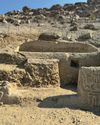
ORIGINS OF PERUVIAN RELIGION
While investigating looters' holes at the site of La Otra Banda in northern Peru's Zaña Valley, archaeologist Luis A. Muro Ynoñán of the Field Museum and the Pontifical Catholic University of Peru spotted carved blocks around seven feet below the surface.
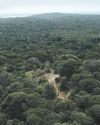
ISLAND OF FREEDOM
Many of the enslaved Africans sent to Brazil beginning in 1549 were from what is now Angola, where one of the most widely spoken languages was Kimbundu.
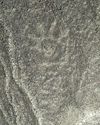
NAZCA GHOST GLYPHS
From the 1940s to the early 2000s, geoglyphs were discovered in the Nazca Desert of southern Peru depicting animals, humans, and other figures at the rate of 1.5 per year.
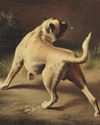
COLONIAL COMPANIONS
The ancestry of dogs in seventeenth-century Jamestown offers a window into social dynamics between Indigenous people and early colonists.
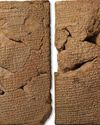
BAD MOON RISING
The British Museum houses around 130,000 clay tablets from ancient Mesopotamia written in cuneiform script between 3200 B.C. and the first century A.D.
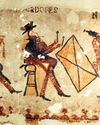
DANCING DAYS OF THE MAYA
In the mountains of Guatemala, murals depict elaborate performances combining Catholic and Indigenous traditions
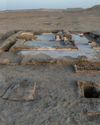
LOST GREEK TRAGEDIES REVIVED
How a scholar discovered passages from a great Athenian playwright on a discarded papyrus

Medieval England's Coveted Cargo
Archaeologists dive on a ship laden with marble bound for the kingdom's grandest cathedrals

Unearthing a Forgotten Roman Town
A stretch of Italian farmland concealed one of the small cities that powered the empire
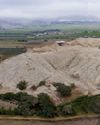
TOP 10 DISCOVERIES OF 2024
ARCHAEOLOGY magazine reveals the year's most exciting finds